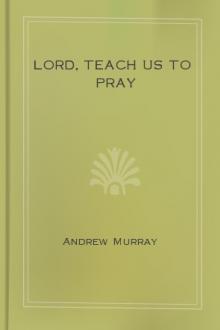St. George and St. Michael - George MacDonald (beach books .txt) 📗

- Author: George MacDonald
Book online «St. George and St. Michael - George MacDonald (beach books .txt) 📗». Author George MacDonald
/> Dorothy darted forward, but could not come near him for the crowd.
'My lord Charles,' cried the marquis, 'see the poor fellow taken care of. Let him sleep, and perchance on the morrow he will listen to reason. Mistress Watson will see to his hurts. I would to God he were on our side! I like him well.'
The men took him up and followed lord Charles to the housekeeper's apartment, where they laid him on a bed in a little turret, and left him, still insensible, to her care, with injunctions to turn the key in the lock if she went from the chamber but for a moment. 'For who can tell,' thought lord Charles, greatly perplexed, 'but as he came he may go?'
Some of the household had followed them, and several of the women would gladly have stayed, but Mrs. Watson sent all away. Gradually the crowd dispersed. The tumult ceased; the household retired. The castle grew still, and most of its inhabitants fell asleep again.
'A damned hot-livered roundhead coxcomb!' said lord Worcester to himself, pacing his room. 'These pelting cockerel squires and yeomen nowadays go strutting and crowing as if all the yard were theirs! We shall see how far this heat will carry the rogue! I doubt not the boy would tell everything than see his mare whipped. He's a fine fellow, and it were a thousand pities he turned coward and gave in. But the affair is not mine; it is the king's majesty's. Would to God the rascal were of our side! He's the right old English breed. A few such were very welcome, if only to show some of our dainty young lordlings of yesterday what breed can do. But an ass-foal it is! To run his neck into a halter, and set honest people in mortal doubt whether to pull the end or no!
How on earth did he ever dream of carrying off a horse out of the very courts of Raglan castle! And yet, by saint George! he would have done it too, but for that brave wench of a Vaughan! What a couple the two would make! They'd give us a race of Arthurs and Orlandos between them. God be praised there are such left in England! And yet the rogue is but a pestilent roundhead-the more's the pity! Those coward rascals need never have mauled him like that. Yet had the blow gone a little deeper it had been a mighty gain to our side. Out he shall not go till the war be over! It would be downright treason.'
So ran the thoughts of the marquis as he paced his chamber. But at length he lay down once more, and sought refuge in sleep.
CHAPTER XXXI.
THE SLEEPLESS.
There were more than the marquis left awake and thinking; amongst the rest one who ought to have been asleep, for the thoughts that kept her awake were evil thoughts.
Amanda Serafina Fuller was a twig or leaf upon one of many decaying branches, which yet drew what life they had from an ancient genealogical tree. Property gone, but the sense of high birth swollen to a vice, the one thought in her mother's mind, ever since she grew capable of looking upon the social world in its relation to herself, had been how, with stinted resources, to make the false impression of plentiful ease. For one of the most disappointing things in high descent is, that the descent is occasionally into depths of meanness. Some who are proudest of their lineage, instead of finding therein a spur to nobility of thought and action, find in it only a necessity for prostrating themselves with the more abject humiliation at the footstool of Mammon, to be admitted into the penetralia of which foul god's favours, they will hasten to mingle the blood of their pure descent with that of the very kennels, yellow with the gold to which a noble man, if poor as Jesus himself, would loathe to be indebted for a meal. In 'the high countries' there will be a finding of levels more appalling than strange.
Hence Amanda had been born and brought up in falsehood, had been all her life witness to a straining after the untrue so energetic, as to assume the appearance of conscience; while such was the tenor and spirit of the remarks she was constantly hearing, that she grew up with the ingrained undisputed idea that she and her mother, whom she had only known as a widow, had been wronged, spoiled indeed of their lawful rights, by a combination of their rich relatives; whereas in truth they had been the objects of very considerable generosity, which they resented the more that it had been chiefly exercised by such of the family as could least easily afford it, yet accepted in their hearts, if not in their words, as their natural right. The intercession through which Amanda had been received into lady Margaret's household, was the contribution towards their maintenance of one of their richer connections: the marquis himself, although distantly related, not having previously been aware of their existence.
But Amanda felt degraded by her position, and was unaware that to herself alone she owed the degradation: she had not yet learned that the only service which can degrade is that which is unwillingly rendered. To be paid for such, is degradation in its very essence. Every one who grumbles at his position as degrading, yet accepts the wages thereof, brands himself a slave.
The evil tendencies which she had inherited, had then been nourished in her from her very birth-chief of these envy, and a strong tendency to dislike. Mean herself, she was full of suspicions with regard to others, and found much pleasure in penetrating what she took to be disguise, and laying bare the despicable motives which her own character enabled her either to discover or imagine, and which, in other people, she hated. Moderately good people have no idea of the vileness of which their own nature is capable, or which has been developed in not a few who pass as respectable persons, and have not yet been accused either of theft or poisoning. Such as St. Paul alone can fully understand the abyss of moral misery from which the in-dwelling spirit of God has raised them.
The one redeeming element in Amanda was her love to her mother, but inasmuch as it was isolated and self-reflected, their mutual attachment partook of the nature of a cultivated selfishness, and had lost much of its primal grace. The remaining chance for such a woman, so to speak, seems-that she should either fall in love with a worthy man, if that be still possible to her, or, by her own conduct, be brought into dismal and incontrovertible disgrace.
She had stood in the hall within a few yards of Dorothy, and had intently watched her face all the time Richard was before the marquis. But not because she watched the field of their play was Amanda able to read the heart whence ascended those strangely alternating lights and shadows. She had, by her own confession, conceived a strong dislike to Dorothy the moment she saw her, and without love there can be no understanding. Hate will sharpen observation to the point of microscopic vision, affording opportunity for many a shrewd guess, and revealing facts for the construction of the cleverest and falsest theories, but will leave the observer as blind as any bat to the scope of the whole, or the meaning of the parts which can be understood only from the whole; for love alone can interpret.
As she gazed on the signs of conflicting emotion in Dorothy's changes of colour and expression, Amanda came quickly enough to the conclusion that nothing would account for them but the assumption that the sly puritanical minx was in love with the handsome young roundhead. How else could the deathly pallor of her countenance while she fixed her eyes wide and unmoving upon his face, and the flush that ever and anon swept its red shadow over the pallor as she cast them on the ground at some brave word from the lips of the canting psalm-singer, be in the least intelligible? Then came the difficulty: how in that case was her share in his capture to be explained? But here Amanda felt herself in her own province, and before the marquis rose, had constructed a very clever theory, in which exercise of ingenuity, however, unluckily for its truth, she had taken for granted that Dorothy's nature corresponded to her own, and reasoned freely from the character of the one to the conduct of the other. This was her theory: Dorothy had expected Richard, and contrived his admission. His presence betrayed by the mastiff, and his departure challenged by the warder, she had flown instantly to the alarm-bell, to screen herself in any case, and to secure the chance, if he should be taken, of liberating him without suspicion under cover of the credit of his capture. The theory was a bold one, but then it accounted for all the points-amongst the rest, how he had got the password and why he would not tell-and was indeed in the fineness of its invention equally worthy of both the heart and the intellect of the theorist.
Nor were mistress Fuller's resolves behind her conclusions in merit: of all times since first she had learned to mistrust her, this night must Dorothy be watched; and it was with a gush of exultation over her own acuteness that she saw her follow the men who bore Richard from the hall.
If Dorothy knew more of her own feelings than she who watched her, she was far less confident that she understood them. Indeed she found them strangely complicated, and as difficult to control as to understand, while she stood gazing on the youth who through her found himself helpless and wounded in the hands of his enemies. He was all in the wrong, no doubt-a rebel against his king, and an apostate from the church of his country; but he was the same Richard with whom she had played all her childhood, whom her mother had loved, and between whom and herself had never fallen shadow before that cast by the sudden outblaze of the star of childish preference into the sun of youthful love. And was it not when the very mother of shadows, the blackness of darkness itself, swept between them and separated them for ever, that first she knew how much she had loved him? What if not with the love that could listen entranced to its own echo!-love of child or love of maiden, Dorothy never asked herself which it had been, or which it was now. She was not given to self-dissection. The cruel fingers of analysis had never pulled her flower to pieces, had never rubbed the bloom from the sun-dyed glow of her feelings. But now she could not help the vaporous rise of a question: all was over, for Richard had taken the path of presumption, rebellion, and violence-how then came it that her heart beat with such a strange delight at every answer he made to the expostulations or enticements of the marquis? How was it that his approval of the intruder, not the less evident that it was unspoken, made her heart swell with pride and satisfaction, causing her to forget the rude rebellion housed within the form whose youth alone prevented it from looking grand in her eyes?
For the moment her heart had the better of-her conscience, shall I say? Yes, of that part of her conscience, I will allow, which had grown weak by the wandering of its roots into the poor soil of opinion. In the delight
'My lord Charles,' cried the marquis, 'see the poor fellow taken care of. Let him sleep, and perchance on the morrow he will listen to reason. Mistress Watson will see to his hurts. I would to God he were on our side! I like him well.'
The men took him up and followed lord Charles to the housekeeper's apartment, where they laid him on a bed in a little turret, and left him, still insensible, to her care, with injunctions to turn the key in the lock if she went from the chamber but for a moment. 'For who can tell,' thought lord Charles, greatly perplexed, 'but as he came he may go?'
Some of the household had followed them, and several of the women would gladly have stayed, but Mrs. Watson sent all away. Gradually the crowd dispersed. The tumult ceased; the household retired. The castle grew still, and most of its inhabitants fell asleep again.
'A damned hot-livered roundhead coxcomb!' said lord Worcester to himself, pacing his room. 'These pelting cockerel squires and yeomen nowadays go strutting and crowing as if all the yard were theirs! We shall see how far this heat will carry the rogue! I doubt not the boy would tell everything than see his mare whipped. He's a fine fellow, and it were a thousand pities he turned coward and gave in. But the affair is not mine; it is the king's majesty's. Would to God the rascal were of our side! He's the right old English breed. A few such were very welcome, if only to show some of our dainty young lordlings of yesterday what breed can do. But an ass-foal it is! To run his neck into a halter, and set honest people in mortal doubt whether to pull the end or no!
How on earth did he ever dream of carrying off a horse out of the very courts of Raglan castle! And yet, by saint George! he would have done it too, but for that brave wench of a Vaughan! What a couple the two would make! They'd give us a race of Arthurs and Orlandos between them. God be praised there are such left in England! And yet the rogue is but a pestilent roundhead-the more's the pity! Those coward rascals need never have mauled him like that. Yet had the blow gone a little deeper it had been a mighty gain to our side. Out he shall not go till the war be over! It would be downright treason.'
So ran the thoughts of the marquis as he paced his chamber. But at length he lay down once more, and sought refuge in sleep.
CHAPTER XXXI.
THE SLEEPLESS.
There were more than the marquis left awake and thinking; amongst the rest one who ought to have been asleep, for the thoughts that kept her awake were evil thoughts.
Amanda Serafina Fuller was a twig or leaf upon one of many decaying branches, which yet drew what life they had from an ancient genealogical tree. Property gone, but the sense of high birth swollen to a vice, the one thought in her mother's mind, ever since she grew capable of looking upon the social world in its relation to herself, had been how, with stinted resources, to make the false impression of plentiful ease. For one of the most disappointing things in high descent is, that the descent is occasionally into depths of meanness. Some who are proudest of their lineage, instead of finding therein a spur to nobility of thought and action, find in it only a necessity for prostrating themselves with the more abject humiliation at the footstool of Mammon, to be admitted into the penetralia of which foul god's favours, they will hasten to mingle the blood of their pure descent with that of the very kennels, yellow with the gold to which a noble man, if poor as Jesus himself, would loathe to be indebted for a meal. In 'the high countries' there will be a finding of levels more appalling than strange.
Hence Amanda had been born and brought up in falsehood, had been all her life witness to a straining after the untrue so energetic, as to assume the appearance of conscience; while such was the tenor and spirit of the remarks she was constantly hearing, that she grew up with the ingrained undisputed idea that she and her mother, whom she had only known as a widow, had been wronged, spoiled indeed of their lawful rights, by a combination of their rich relatives; whereas in truth they had been the objects of very considerable generosity, which they resented the more that it had been chiefly exercised by such of the family as could least easily afford it, yet accepted in their hearts, if not in their words, as their natural right. The intercession through which Amanda had been received into lady Margaret's household, was the contribution towards their maintenance of one of their richer connections: the marquis himself, although distantly related, not having previously been aware of their existence.
But Amanda felt degraded by her position, and was unaware that to herself alone she owed the degradation: she had not yet learned that the only service which can degrade is that which is unwillingly rendered. To be paid for such, is degradation in its very essence. Every one who grumbles at his position as degrading, yet accepts the wages thereof, brands himself a slave.
The evil tendencies which she had inherited, had then been nourished in her from her very birth-chief of these envy, and a strong tendency to dislike. Mean herself, she was full of suspicions with regard to others, and found much pleasure in penetrating what she took to be disguise, and laying bare the despicable motives which her own character enabled her either to discover or imagine, and which, in other people, she hated. Moderately good people have no idea of the vileness of which their own nature is capable, or which has been developed in not a few who pass as respectable persons, and have not yet been accused either of theft or poisoning. Such as St. Paul alone can fully understand the abyss of moral misery from which the in-dwelling spirit of God has raised them.
The one redeeming element in Amanda was her love to her mother, but inasmuch as it was isolated and self-reflected, their mutual attachment partook of the nature of a cultivated selfishness, and had lost much of its primal grace. The remaining chance for such a woman, so to speak, seems-that she should either fall in love with a worthy man, if that be still possible to her, or, by her own conduct, be brought into dismal and incontrovertible disgrace.
She had stood in the hall within a few yards of Dorothy, and had intently watched her face all the time Richard was before the marquis. But not because she watched the field of their play was Amanda able to read the heart whence ascended those strangely alternating lights and shadows. She had, by her own confession, conceived a strong dislike to Dorothy the moment she saw her, and without love there can be no understanding. Hate will sharpen observation to the point of microscopic vision, affording opportunity for many a shrewd guess, and revealing facts for the construction of the cleverest and falsest theories, but will leave the observer as blind as any bat to the scope of the whole, or the meaning of the parts which can be understood only from the whole; for love alone can interpret.
As she gazed on the signs of conflicting emotion in Dorothy's changes of colour and expression, Amanda came quickly enough to the conclusion that nothing would account for them but the assumption that the sly puritanical minx was in love with the handsome young roundhead. How else could the deathly pallor of her countenance while she fixed her eyes wide and unmoving upon his face, and the flush that ever and anon swept its red shadow over the pallor as she cast them on the ground at some brave word from the lips of the canting psalm-singer, be in the least intelligible? Then came the difficulty: how in that case was her share in his capture to be explained? But here Amanda felt herself in her own province, and before the marquis rose, had constructed a very clever theory, in which exercise of ingenuity, however, unluckily for its truth, she had taken for granted that Dorothy's nature corresponded to her own, and reasoned freely from the character of the one to the conduct of the other. This was her theory: Dorothy had expected Richard, and contrived his admission. His presence betrayed by the mastiff, and his departure challenged by the warder, she had flown instantly to the alarm-bell, to screen herself in any case, and to secure the chance, if he should be taken, of liberating him without suspicion under cover of the credit of his capture. The theory was a bold one, but then it accounted for all the points-amongst the rest, how he had got the password and why he would not tell-and was indeed in the fineness of its invention equally worthy of both the heart and the intellect of the theorist.
Nor were mistress Fuller's resolves behind her conclusions in merit: of all times since first she had learned to mistrust her, this night must Dorothy be watched; and it was with a gush of exultation over her own acuteness that she saw her follow the men who bore Richard from the hall.
If Dorothy knew more of her own feelings than she who watched her, she was far less confident that she understood them. Indeed she found them strangely complicated, and as difficult to control as to understand, while she stood gazing on the youth who through her found himself helpless and wounded in the hands of his enemies. He was all in the wrong, no doubt-a rebel against his king, and an apostate from the church of his country; but he was the same Richard with whom she had played all her childhood, whom her mother had loved, and between whom and herself had never fallen shadow before that cast by the sudden outblaze of the star of childish preference into the sun of youthful love. And was it not when the very mother of shadows, the blackness of darkness itself, swept between them and separated them for ever, that first she knew how much she had loved him? What if not with the love that could listen entranced to its own echo!-love of child or love of maiden, Dorothy never asked herself which it had been, or which it was now. She was not given to self-dissection. The cruel fingers of analysis had never pulled her flower to pieces, had never rubbed the bloom from the sun-dyed glow of her feelings. But now she could not help the vaporous rise of a question: all was over, for Richard had taken the path of presumption, rebellion, and violence-how then came it that her heart beat with such a strange delight at every answer he made to the expostulations or enticements of the marquis? How was it that his approval of the intruder, not the less evident that it was unspoken, made her heart swell with pride and satisfaction, causing her to forget the rude rebellion housed within the form whose youth alone prevented it from looking grand in her eyes?
For the moment her heart had the better of-her conscience, shall I say? Yes, of that part of her conscience, I will allow, which had grown weak by the wandering of its roots into the poor soil of opinion. In the delight
Free e-book «St. George and St. Michael - George MacDonald (beach books .txt) 📗» - read online now
Similar e-books:





Comments (0)